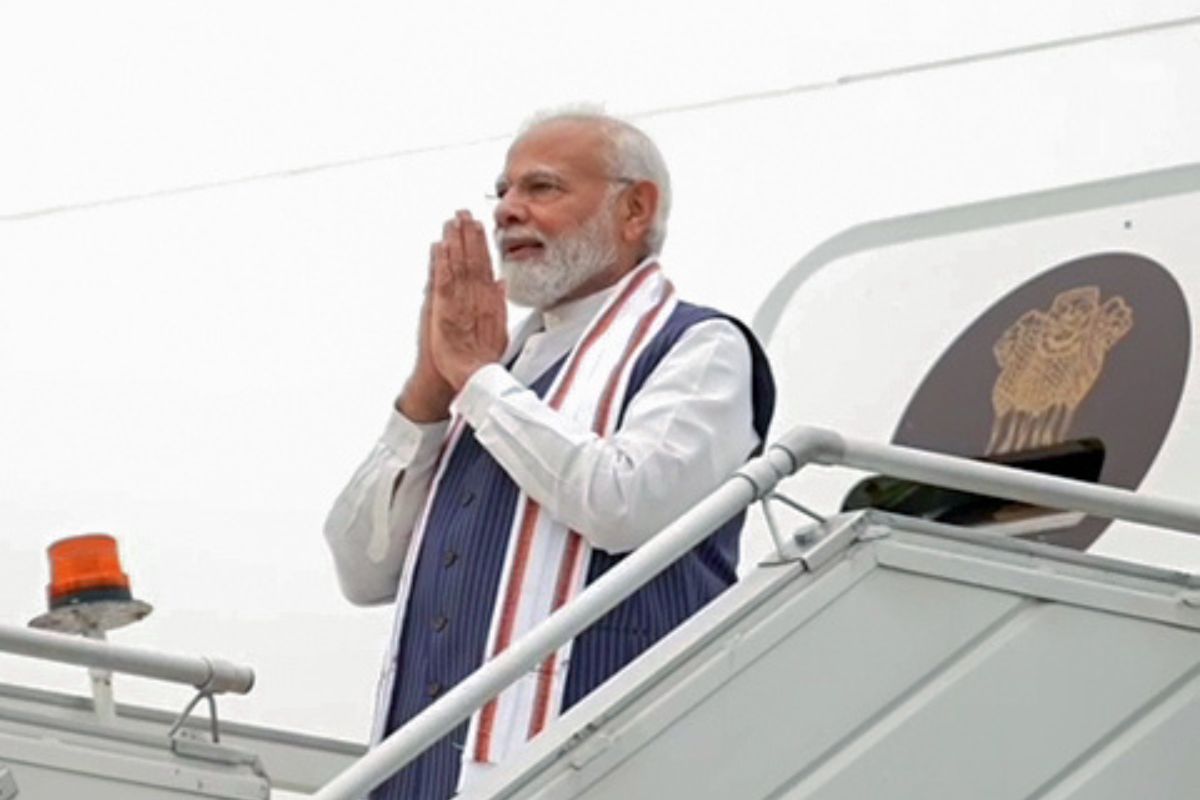Ahead of the G20 summit in New Delhi, Prime Minister Narendra Modi sought to position India as a major global player, saying top world leaders were also now fully convinced that this country has a lot to offer and must play a larger role in shaping the global future.
”When global leaders meet me, they are filled with a sense of optimism about India due to the efforts of 140 crore Indians across various sectors,” he said in an interview to Moneycontrol.
Advertisement
The PM observed that over the last many years, the world has been keenly watching India’s growth across many sectors.
”Our economic reforms, banking reforms, capacity building in the social sector, work on financial and digital inclusion, the pursuit of saturation in basic necessities such as sanitation, electricity and housing, and unprecedented investment in infrastructure have been hailed by international organisations and domain experts. Global investors also showed their confidence in India by creating records in FDI year after year,” he said.
Mr Modi noted that India’s G20 motto of ‘Vasudhaiva Kutumbakam’ (One Earth One Family One Future) captured the country’s outlook towards the G20 Presidency aptly. ”…we have followed the approach of Sabka Saath, Sabka Vikas, Sabka Vishwas, Sabka Prayas in our country over the last 9 years. It has yielded great dividends in bringing the country together to pursue progress and deliver the fruits of growth to the last mile. Today, there is international recognition for the success of this model, too,” he added.
Mr Modi observed that there were many factors behind the strengthening of India’s relationships with various countries across regions. After many decades of instability, in 2014, the people of India voted for a stable government that had a clear agenda for development. These reforms empowered India to not only strengthen its economy, education, health and welfare delivery but also gave the country the ability to become part of global solutions in various domains. Whether it was space or science, technology or trade, economy or ecology, India’s actions have been lauded worldwide.
”Whenever any country interacted with us, they knew they were interacting with an aspirational India that was looking to partner with them in their progress while also taking care of its own interests. This was an India that had a lot to contribute to every relationship and naturally, our global footprint increased across regions and even countries that saw each other as adversaries became friendlier with us,” he added.
When pointed out that he would be hosting the G20 Summit during the time of war and great geopolitical uncertainty, the PM said ”Sabka Saath, Sabka Vikas, Sabka Vishwas, Sabka Prayas” was India’s guiding principle in global relations as well.
Pointing out that India shipped vaccines and medicines to over 150 countries during the pandemic, Mr Modi said that over the last nine years, the world has also witnessed that the country was willing to bring various countries together through various initiatives such as the International Solar Alliance and the Coalition for Disaster Resilient Infrastructure, among others.
”Therefore, there was a widespread acknowledgement of India’s words, work and vision as both inclusive and effective, nationally and internationally. At such a time when global trust in our country’s capabilities was at unprecedented levels, we became the G20 President,” he said.
The PM explained how the world welcomed India’s G20 agenda, because everyone knew that this country would bring its proactive and positive approach to help find solutions for global issues. He noted that by the end of India’s presidency of G20, it would have hosted over 220 meetings in 60 cities across all 28 states and 8 union territories.
”More than 1 lakh participants from approximately 125 nationalities will have visited India. Over 1.5 crore individuals in our country have been involved in these programs or have been exposed to various aspects of them,” he added.
He pointed out that historically, in the circles of power, there was a certain reluctance to think beyond Delhi, particularly Vigyan Bhavan, for hosting national and international meets. Many of the G20 meetings were held in the states ruled by non-NDA governments, which was a testament to his firm belief in cooperative federalism and bipartisanship when it came to national interest, he added.
India, he said, has made important contributions to the evolving discussions and actions over the years in G20 on issues ranging from terrorism to black money, from supply chain resilience to climate-conscious growth. There have also been appreciable developments in global cooperation on these issues after they were raised at G20.
”Of course, there is always scope for improvement, such as greater involvement of the Global South, and a bigger role for Africa, amongst others. These are the areas that India is working on during its G20 Presidency.” he added.











